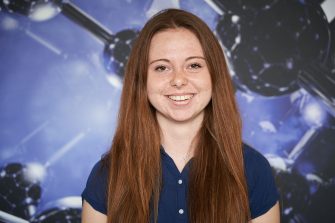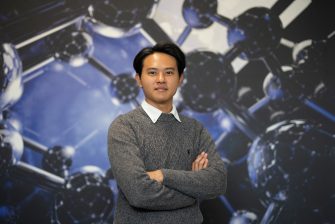This project aims to create a quantum version of a chaotic system using a single spin in silicon.

How does the macroscopic world that we experience in our everyday life emerge from the underlying microscopic world invisible to the naked eye? This question, as old as science itself, became particularly relevant over the past 100 years in understanding how classical mechanics, governing the macroscopic world, derives from quantum mechanics, governing the underlying microscopic world. Although tremendous progress has been made, still many puzzling questions remain [Leggett2002].
In classical nonlinear systems, chaotic behavior is characterized by extreme sensitivity to initial conditions, leading to exponential divergence between systems starting from nearly identical states. In contrast, quantum systems typically exhibit quasiperiodic behavior due to the discrete nature of quantum mechanics. However, it is predicted that quantum systems with chaotic classical counterparts will also exhibit chaotic features.
Studying the emergence of chaotic behavior in quantum systems offers insights into the boundary between the quantum and classical realms. Moreover, quantum chaos is thought to play a significant role in fundamental physics topics such as decoherence [Paz1994] and the thermalization of isolated quantum systems [Deutsch1991]. Despite its importance, experimental studies of quantum chaos remain [Hensinger2001, Steck2001, Chaudhurry2009, Manai2015, Neill2016], with no experiments to date observing a single quantum-mechanical degree of freedom in real time.
We plan to use the 7/2 nuclear spin of a single antimony donor in silicon to implement a quantum-mechanical analogue of a classically chaotic system, known as the driven top [Mourik2017]. By utilizing the recently developed infrastructure for full control over the 7/2 antimony spin system [Assad2020, Fuentes2024, Yu2024], we aim to conduct the first experimental study of quantum chaos in a single quantum system. The antimony nucleus's long coherence times will enable us to explore these dynamics over unprecedented timescales.

- Publications
- Team members
- Collaborators
Asaad S; Mourik V; Joecker B; Johnson MAI; Baczewski AD; Firgau HR; Mądzik MT; Schmitt V; Pla JJ; Hudson FE; Itoh KM; McCallum JC; Dzurak AS; Laucht A; Morello A, 2020, 'Coherent electrical control of a single high-spin nucleus in silicon',Nature, 579, pp. 205 - 209, 2020
Vincent Mourik, Serwan Asaad, Hannes Firgau, Jarryd J. Pla, Catherine Holmes, Gerard J. Milburn, Jeffrey C. McCallum, Andrea Morello, An experimentally realizable single-atom chaotic driven top in silicon, 2017
Jarryd Pla at UNSW Sydney, David N. Jamieson at University of Melbourne , Fay Hudson at UNSW Sydney, Andrew Dzurak at UNSW Sydney, Kohei M Itoh at Keio University





